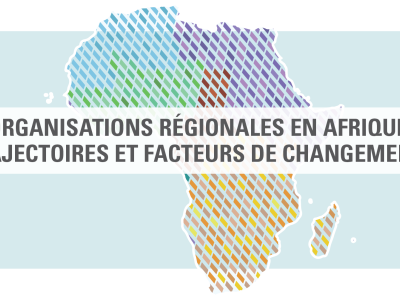
Climate change at the EDDs: What is going to happen now?
“Climate change does not respect borders and it is a threat that multiplies quickly to other sectors. It is the biggest challenge to the developing world in the post-2015 landscape.”
With these words, the face of today’s Europe, European Commission President Jose Manuel Barroso started his opening speech at the beginning of the European Development Days (EDDs) in Brussels in November.
Quickly browsing through the packed EDD’s programme, I noticed that one out of six sessions was dedicated to climate change. Positive, I thought. Throughout the two days, the climate change issue was looked upon through various lenses, depending on who the speakers were and which organisation was printed on their business cards.
I attended all of these sessions. Clearly, developing countries' representatives screamed for more assistance, due to the lagging capacity deficits their countries face. From their side, leaders of the industrialised world stressed their "spectacular achievements". These donor countries emphasized, however, that there is still a strong need for good institution-building. Then, the established NGOs, giants such as the Red Cross and Oxfam did the soldering work. They presented a number of concrete adaptation tools. Finally, research institutes and think tanks were there to present their studies and bark out their results.
These various tracks of discourse seem to mirror the actual landscape of international relations. No surprise that the latest United Nations Framework Convention on Climate Change (UNFCCC) Conference in Warsaw ended on an undecided note. Similarly, the EDDs were two days filled with rhetoric, but as in every relationship, it is important that people talk.
This talking happened simultaneously in seven tiny (hot! a sarcastic joke to stress the need for urgent climate change adaptation?) rooms. However, these square tents were too small to host the often bombastic discourse and all the people-with-an-interest. Due to very bad acoustics in these boxes, I sometimes lost the details. This made me wonder: if I were not able to simply hear all words spoken, then how would the messages by the policymakers and practitioners in other boxes be heard? Where do the needs expressed during the presentations meet with the solutions? And, who will bridge this gap?
Good thing: there were a few high-level plenaries in bigger halls that brought together various views. African presidents, European Commissioners and UN representatives sat together in an attempt to bridge gaps. However, again I was a disappointed witness of the typical separate discourses: Mrs. Connie Hedegaard, EU Commissioner for Climate Action, called the outcome of the latest UNFCCC Conference “meaningful”, but said “every country has homework to do.” She asked for a “coherent and holistic approach”. More precisely, this meant that climate change should be mainstreamed in all sectors of development and in the financial flows. I have a PhD on the topic of “mainstreaming climate change into development” and it is an important practice, but complicated and open to interpretation. The UNDP representative as well as the moderator, a Member of the Committee on Development of the European Parliament confirmed this: they preferred to avoid the term “mainstreaming”. Because it has been over-used.
But let’s avoid the pitfall of philosophising on naming, defining and conceptualisation. Let’s talk deeds. Let’s scale down the broad mumbo jumbo. Let’s, with a constant eye on the post-2015 landscape, try to answer the most important question: what’s going to happen now?
Most sessions did underline the importance of tackling climate change immediately, because time is running quickly like sand through the hourglass. This awareness is a very important step taken so far. In addition, with the full picture unfolding now in the Philippines, the sheer share of the relief and recovery effort is becoming evident.
Solutions were offered, although they had to be filtered down. France is a strong driver, putting climate change as a major issue on the agenda by contributing 50% of their official development assistance to climate change projects. The President of Niger saw solutions in irrigation projects and in development of the agricultural sector. A Kenyan expert advised to address the supply-side of production and to open markets. And, a representative from the World Agriculture Centre promoted agro-forestry as a concrete adaptation measure.
So, in the end, I left the EDDs with new insights.
I will develop these insights at ECDPM. Recognising the severe impact of climate change on development, ECDPM has recently added a new chapter to its work: the threat of increasing temperatures and related risks, looking mainly at impacts on agriculture and food security.
The views expressed here are those of the author, and may not necessarily represent those of ECDPM.


